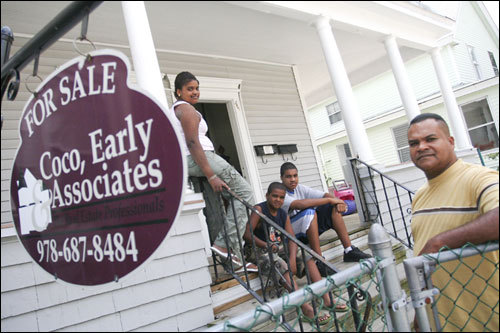This man mek $23,000/year and get a $375,000 mortgage.

Next
Faces of Lawrence's foreclosure crisis
Mario DeJesus (right) bought this three-family Victorian in the spring of 2005, taking two mortgages to cover the $375,000 purchase price. DeJesus, however, earns about $23,000 a year and soon had trouble affording his mortgage.

Next

Faces of Lawrence's foreclosure crisis
Mario DeJesus (right) bought this three-family Victorian in the spring of 2005, taking two mortgages to cover the $375,000 purchase price. DeJesus, however, earns about $23,000 a year and soon had trouble affording his mortgage.


 di market crash...then I never knew, I am just a poor man who wanted to live the American dream fooled by a wiked tief-in mortgage man/woman.
di market crash...then I never knew, I am just a poor man who wanted to live the American dream fooled by a wiked tief-in mortgage man/woman. 

Comment